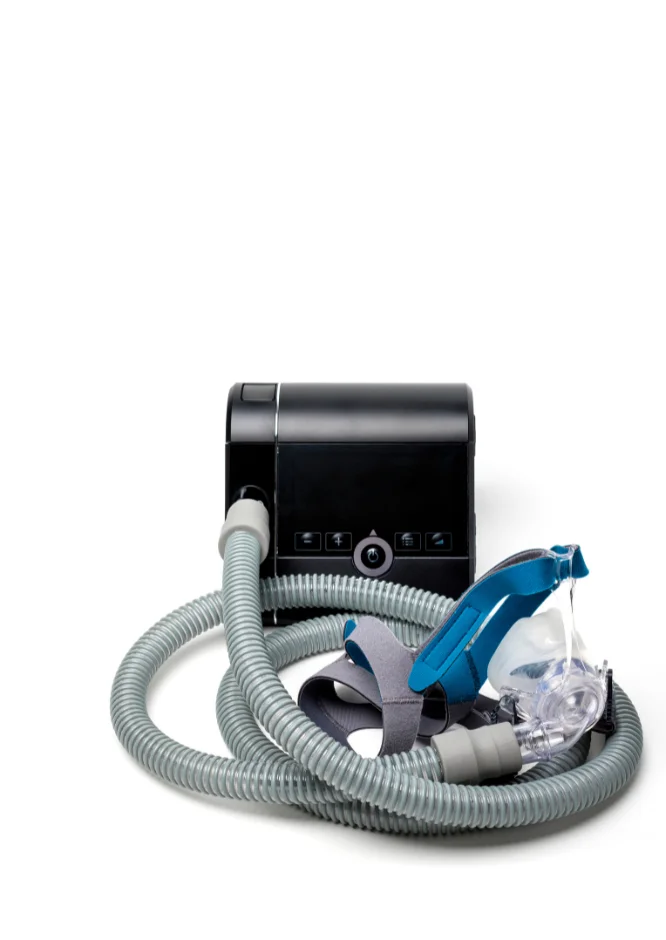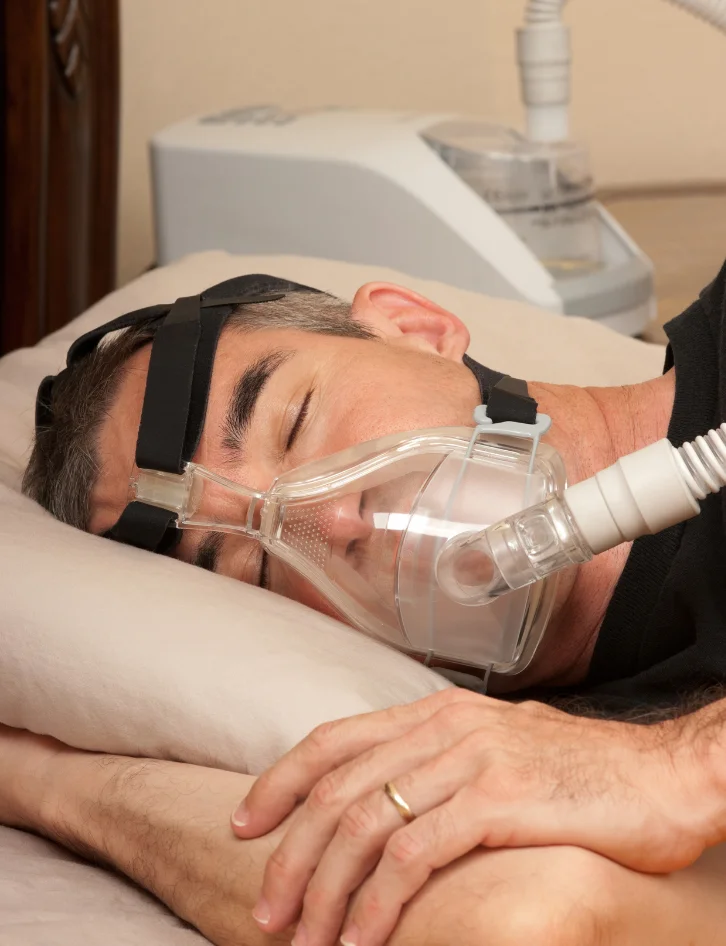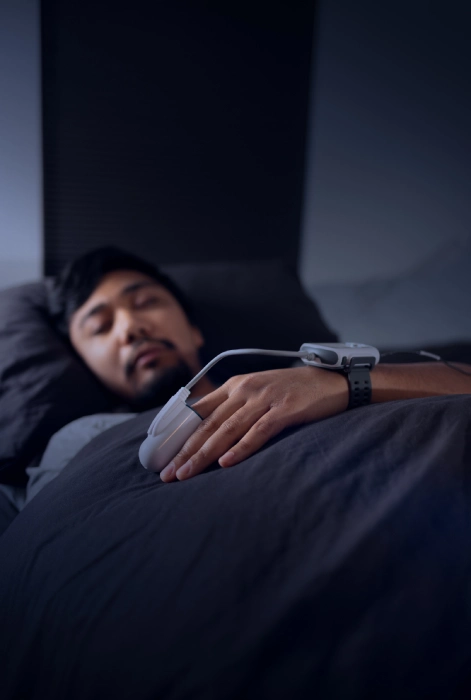DOT PHYSICAL EXAM
Sleep Apnea:
What You Need to Know
Sleep apnea is a common sleep disorder that affects millions of people worldwide. It is characterized by pauses in breathing or shallow breathing during sleep, which can lead to a range of health problems. In some cases, sleep apnea can even be life-threatening.
For individuals with sleep apnea, obtaining a DOT physical is an important step in maintaining their health and safety. DOT physicals are required for individuals who operate commercial vehicles, and they are designed to ensure that drivers are physically capable of safely operating their vehicles. For individuals with sleep apnea, a DOT physical can help identify any potential health issues that could impact their ability to safely operate a commercial vehicle. FMCSA has laid out specific guidelines for drivers with sleep apnea that we will discuss.



Understanding
Sleep Apnea
Sleep apnea is a common sleep disorder that interrupts breathing during sleep, potentially causing serious health issues if untreated. The two main types are obstructive sleep apnea (OSA), caused by throat muscle relaxation, and central sleep apnea (CSA), due to the brain failing to control breathing.
Symptoms include loud snoring, gasping, excessive daytime sleepiness, and irritability. Risk factors include obesity, smoking, alcohol use, and medical conditions like high blood pressure or diabetes.
Untreated sleep apnea can lead to heart disease, stroke, and other complications. Treatments range from lifestyle changes and CPAP machines to oral appliances and surgery. Early diagnosis and treatment greatly improve quality of life.
DOT Physical for
Sleep Apnea Patients
The Importance
Sleep apnea, a common sleep disorder marked by breathing pauses during sleep, can cause serious health issues if untreated. Regular check-ups, including a DOT physical, are key to managing it.
A DOT physical, required for commercial drivers by the Department of Transportation, ensures they are medically fit to drive safely. For those with sleep apnea, this exam identifies health risks that could affect driving.
During the exam, healthcare providers assess overall health, breathing, and symptoms of sleep apnea, potentially recommending tests like a sleep study. If diagnosed, treatment such as CPAP therapy, which keeps airways open during sleep, may be suggested.
A DOT physical helps sleep apnea patients manage their condition, ensuring safer driving and better quality of life.
Charlotte’s Sleep Apnea DOT Physical Providers
Charlotte has several providers specializing in sleep apnea DOT physicals, offering comprehensive care for commercial drivers.
Carolina Sleep Solutions provides state-of-the-art sleep apnea testing, customized treatment plans, and DOT physicals, led by board-certified sleep specialists.
Sleep Apnea Solutions of North Carolina offers diagnostic testing, treatment options, follow-up care, and DOT physicals to ensure driver fitness and safety.
Charlotte Sleep Center conducts home and in-lab sleep studies, along with DOT physicals, to diagnose and manage sleep disorders like sleep apnea.
These providers ensure commercial drivers receive expert care and meet health standards for safe driving.
What to Expect During a DOT Physical
A DOT physical for sleep apnea ensures drivers are fit to operate commercial vehicles safely. Examiners assess for medical conditions that could pose risks on the road.
The process includes a detailed medical history, a physical exam, and questions about sleep apnea symptoms like snoring or daytime sleepiness. Previous treatments, such as CPAP use, may also be discussed.
If necessary, a sleep study might be conducted using a sleep lab or portable monitor. Drivers diagnosed with sleep apnea may need treatment and proof of compliance.
Honesty and adherence to treatment are key to completing the certification process and maintaining road safety.


How to Prepare for a DOT Physical
Preparing for a DOT physical is essential to ensure that you pass the exam and maintain your commercial driver’s license. Here are a few tips to help you prepare for your DOT physical:
1. Get Plenty of Sleep
Getting enough sleep is crucial before your DOT physical exam. It will help you feel more alert and focused during the exam. Sleep apnea can be a disqualifying condition for commercial drivers, so it is essential to manage your sleep apnea if you have it.
2. Bring All Relevant Medical Records
Bring all relevant medical records to your DOT physical exam. This includes any previous sleep studies, doctor’s notes, or medication lists. This information will help the medical examiner determine if you are fit to drive.
3. Stay Hydrated
Drinking plenty of water before your DOT physical exam will help you stay hydrated and alert. It will also make it easier for the medical examiner to draw blood or take a urine sample if necessary.
4. Avoid Stimulants
Avoid consuming any stimulants before your DOT physical exam. This includes caffeine, nicotine, and energy drinks. Stimulants can raise your blood pressure and heart rate, which could affect your exam results.
5. Wear Comfortable Clothing
Wear comfortable clothing to your DOT physical exam. This will help you feel more relaxed during the exam. Avoid wearing tight-fitting clothing that could restrict your movement or blood flow.
By following these tips, you can help ensure that you pass your DOT physical exam with flying colors and maintain your commercial driver’s license.
Frequently Asked Questions
Where can I send my DOT medical card?
You can send your DOT medical card to the North Carolina Division of Motor Vehicles. The address is typically listed on the back of your card.
What does a NC DOT physical consist of?
A North Carolina DOT physical typically consists of a medical examination, vision test, hearing test, and urine test. The medical examination will include a review of your medical history, as well as an evaluation of your current health status.
Where can I submit my DOT physical?
You can submit your DOT physical to the North Carolina Division of Motor Vehicles. The address is typically listed on the back of your medical card.
What are the requirements for passing a DOT physical for sleep apnea?
In order to pass a DOT physical for sleep apnea, you must meet certain requirements. These may include having a diagnosis of sleep apnea, undergoing treatment for the condition, and demonstrating compliance with treatment. The specific requirements may vary depending on the severity of your sleep apnea and other factors.
Can sleep apnea disqualify me from passing a DOT physical?
Sleep apnea alone may not disqualify you from passing a DOT physical. However, if your sleep apnea is severe and not well-controlled, it may impact your ability to safely operate a commercial vehicle.
What is the minimum CPAP usage required for passing a DOT physical?
There is no specific minimum CPAP usage required for passing a DOT physical. However, you must demonstrate compliance with treatment and show that your sleep apnea is well-controlled. Your medical examiner may require additional documentation or testing to ensure that you meet the requirements for passing a DOT physical.
